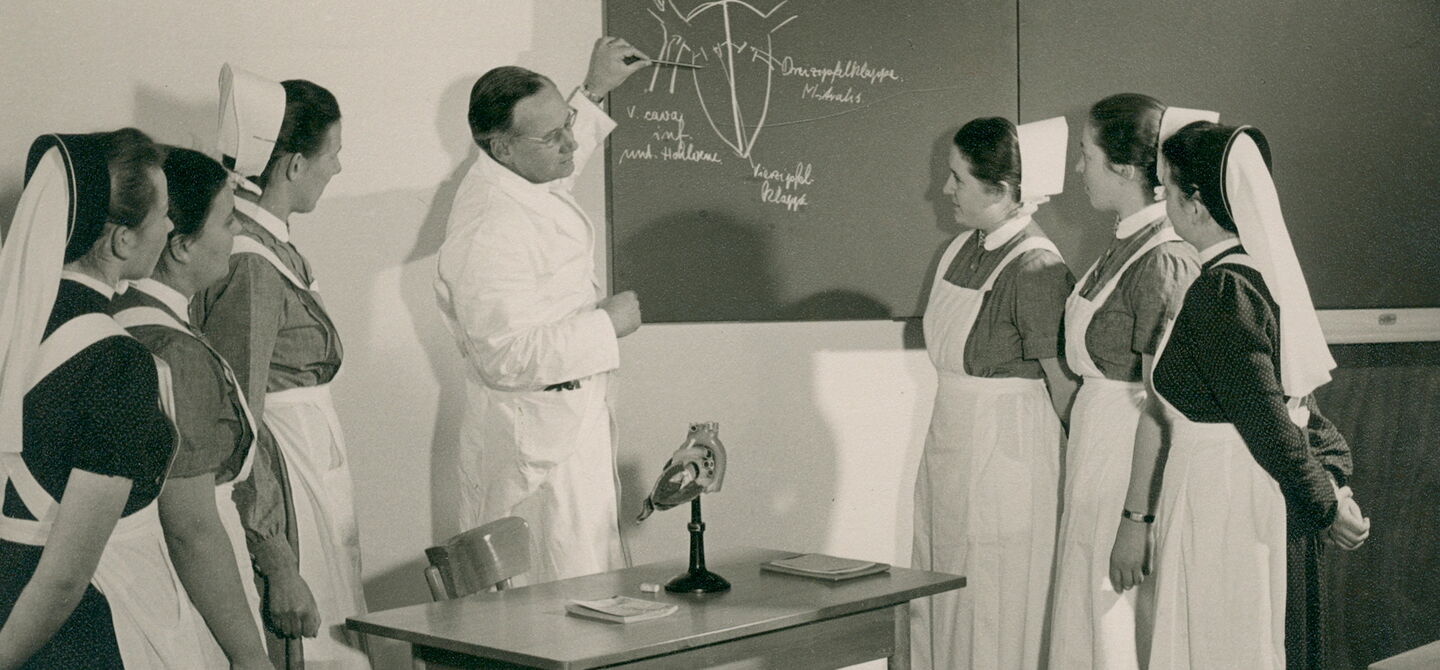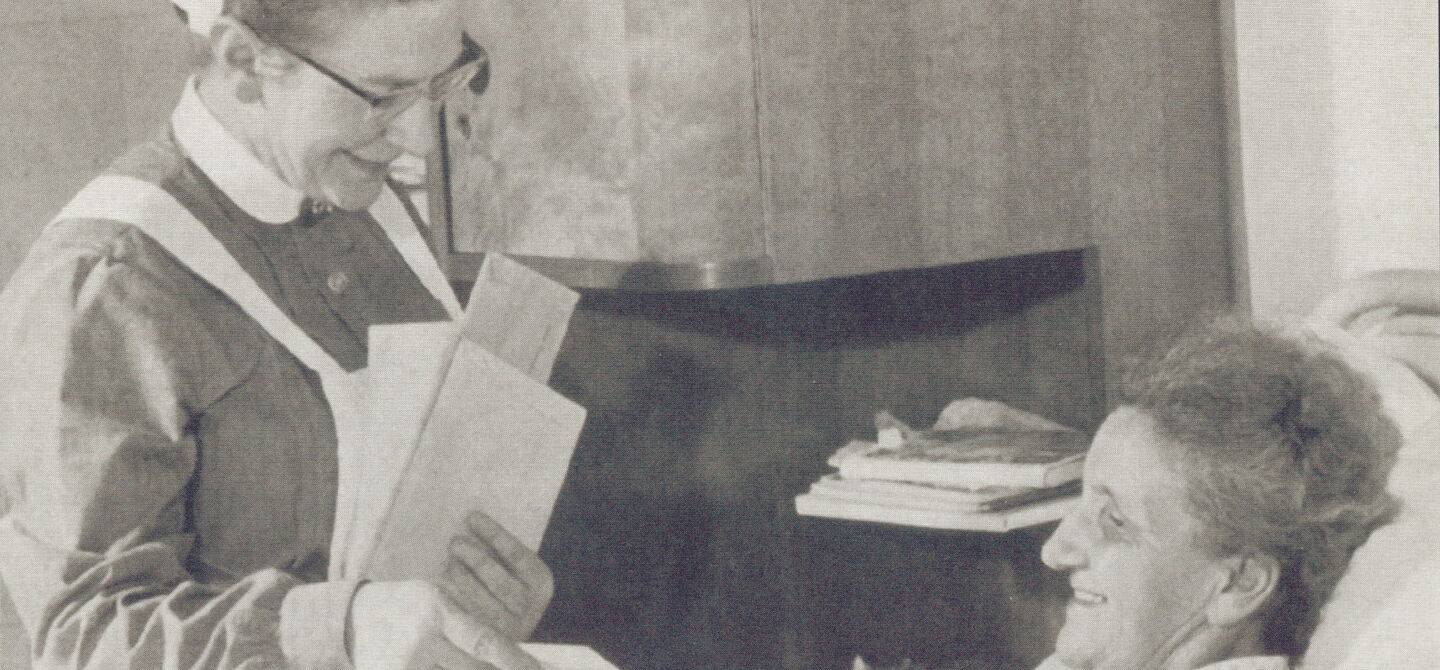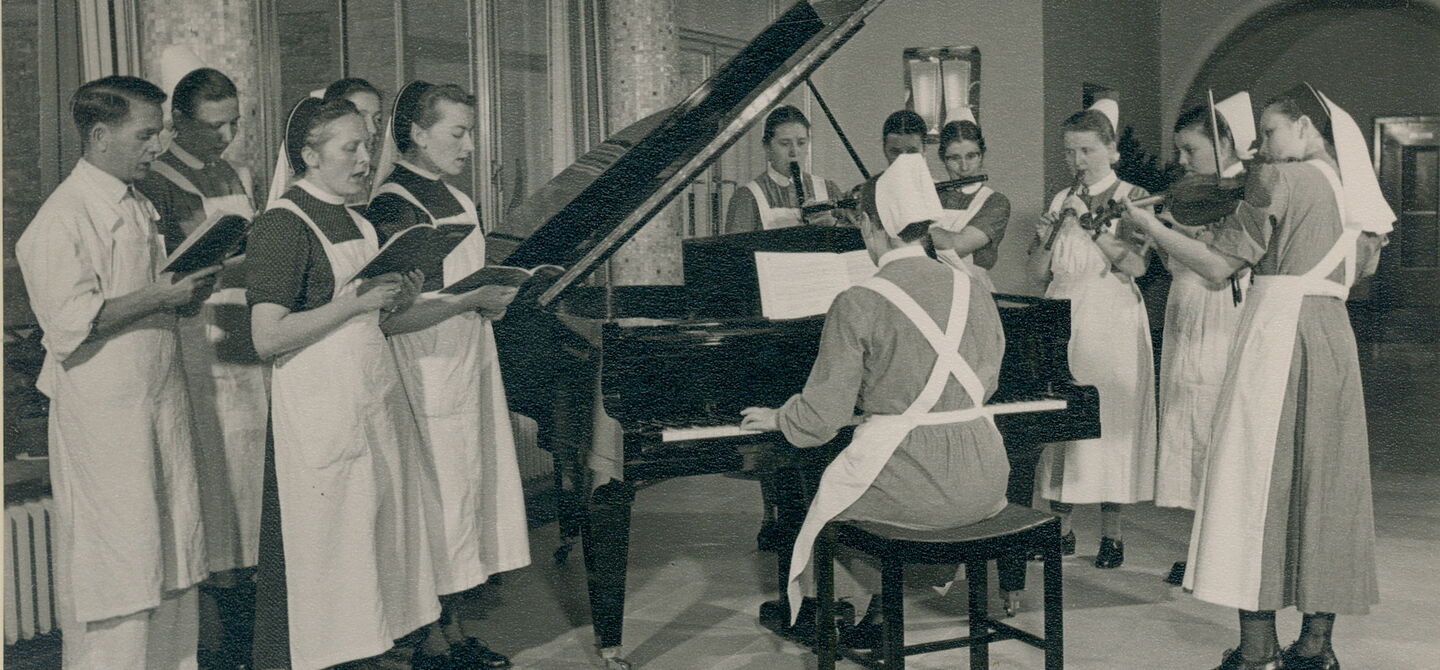History of Nursing- and Healthcare Professions - Patient History
From the outset, the social history of medicine has been one of the IGM's main areas of focus. Numerous research projects have been supported in this field. Today, the focus is primarily on the history of nursing and the healthcare professions in the 20th century. Examining the history of the profession is a central aspect of the identity of the healthcare professions. Only those who know the past can meaningfully contribute to shaping the future. The inclusion of patient history also allows for a closer examination of professional practice in terms of its effects within society.
Current Projects:
- Cooperation and conflicts between doctors and non-medical health professions (1890–1990) / Kooperation und Konflikte zwischen Ärzten und nichtärztlichen Gesundheitsberufen (1890–1990)
Editor: Dr. phil. Pierre Pfütsch
Based on current discussions about healthcare provision for the population, this project aims to take a closer look at the historical dimension. Unlike the current debate, which focuses solely on the creation of new medical professions, this project also examines the collaboration between doctors and existing non-medical healthcare professions. The study focuses on two professional groups: doctors as the first (heterogeneous) large group and non-medical healthcare professions as the second. These two groups are characterised by different degrees of professionalisation and, as a result, different self-perceptions. At the same time, there is a clear hierarchy in the prestige of the professions: non-medical healthcare professions rank below doctors. The term ‘auxiliary healthcare profession’ used in the past already highlights the problem: while doctors merely expect 'help', nurses, midwives and therapists see themselves more as ‘partners’ of doctors. The history of both groups is practically inconceivable without the other as an ‘opponent’ or ‘partner’. The aim here is not only to explore the history of the medical professions in more detail, but also to describe the negotiation processes between different professional groups and the resulting effects on the development of the professions in general.
- Abuses, problems and experiences of violence in nursing homes in recent history / Missstände, Probleme und Gewalterfahrungen in Pflegeheimen in der jüngsten Zeitgeschichte
Editor: Dr. phil. Pierre Pfütsch
In May 2022, Claus Fussek, a well-known care expert and critic in the media, handed over his files and documents to the IGM, where they are being archived. These include approximately 50,000 letters from private individuals reporting on abuses, acts of violence and problems in German nursing homes from the 1990s to 2021. This extensive collection of sources is unique in terms of its size and scope and is of great relevance for historical and social science research, as it reflects the status and situation of care within German society. The collection serves as a starting point for developing a research project on abuses, problems and experiences of violence in nursing homes in recent history. An analysis of abuses in nursing care should not only uncover the causes, but also critically question the value of nursing care in society. The aim is to address the current and acute problem of the nursing care crisis in the context of a history of contemporary issues, to contextualise it and to historicise it. Further file units were processed in the reporting year. In addition, the material was used to produce an essay on violence in the workplace, using nursing homes as an example.
- Local pandemic planning. Municipal preparations for smallpox in the 1960s and 1970s, using the city of Stuttgart as an example / Pandemieplanung vor Ort. Kommunale Vorbereitung auf die Pocken in den 1960er und 1970er Jahren am Beispiel der Stadt Stuttgart
Editor: Dr. phil. Pierre Pfütsch
With COVID-19, it seemed that German health policy had to completely readjust to the outbreak of a pandemic. This is surprising, given that there have been numerous outbreaks of epidemics worldwide since 1945. In the 1960s, smallpox received attention in West Germany. Cities, states and the federal government wanted to prepare as best they could for a possible outbreak. Since health was and is a matter for the states, a wide range of very different interests collided here. Using the example of the establishment of a smallpox isolation ward in the Stuttgart area, this research project examines how health policy interests were negotiated in the face of fluctuating pandemic threats. It became apparent that belonging to different professions in particular reflected the importance of epidemic hygiene measures. Doctors from the municipal health department repeatedly intervened with political representatives in the social and health department. These representatives, in turn, attempted to contain the dangers and integrate them into general city policy. The implementation of preparedness measures on the ground was therefore definitely a matter of negotiation.



